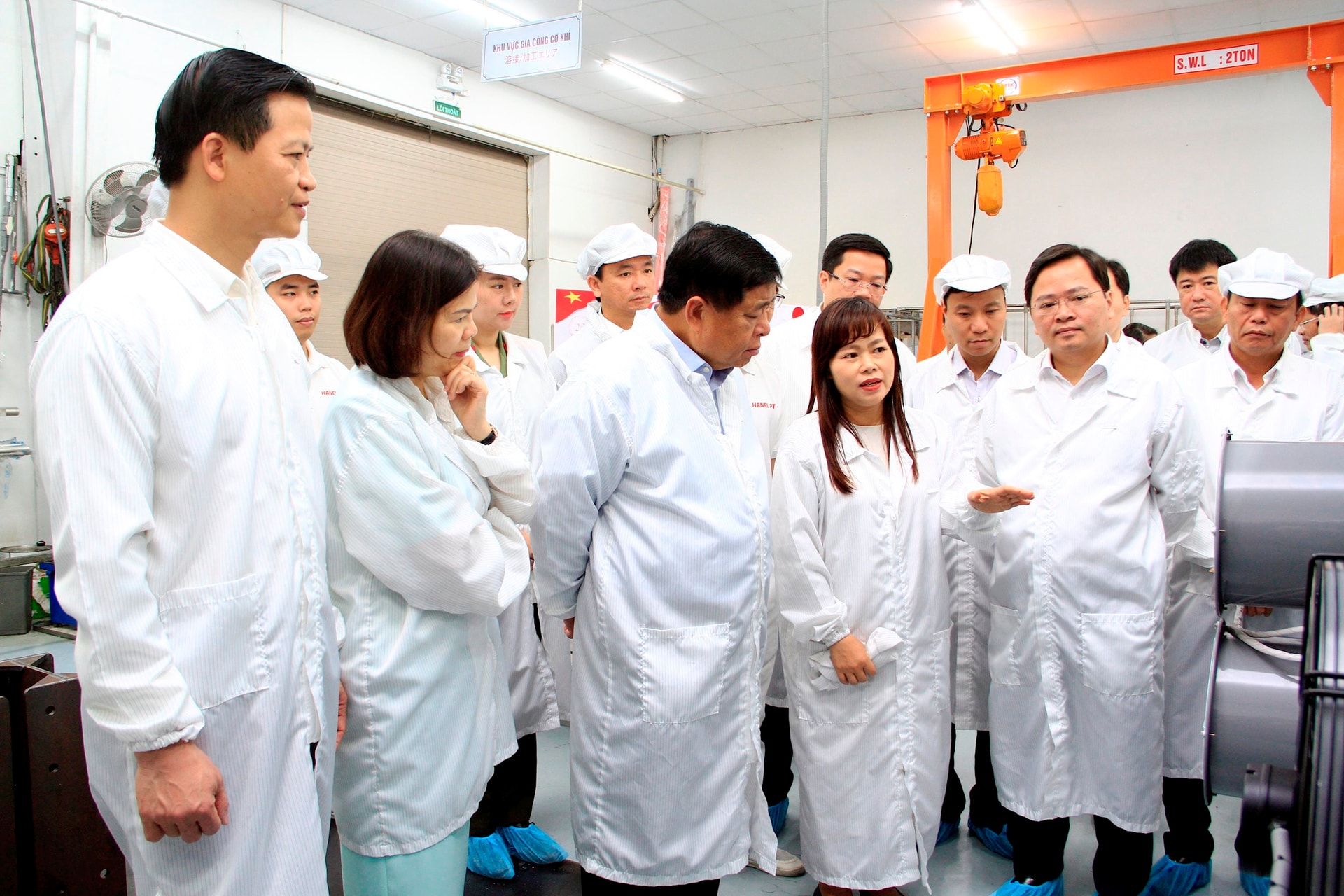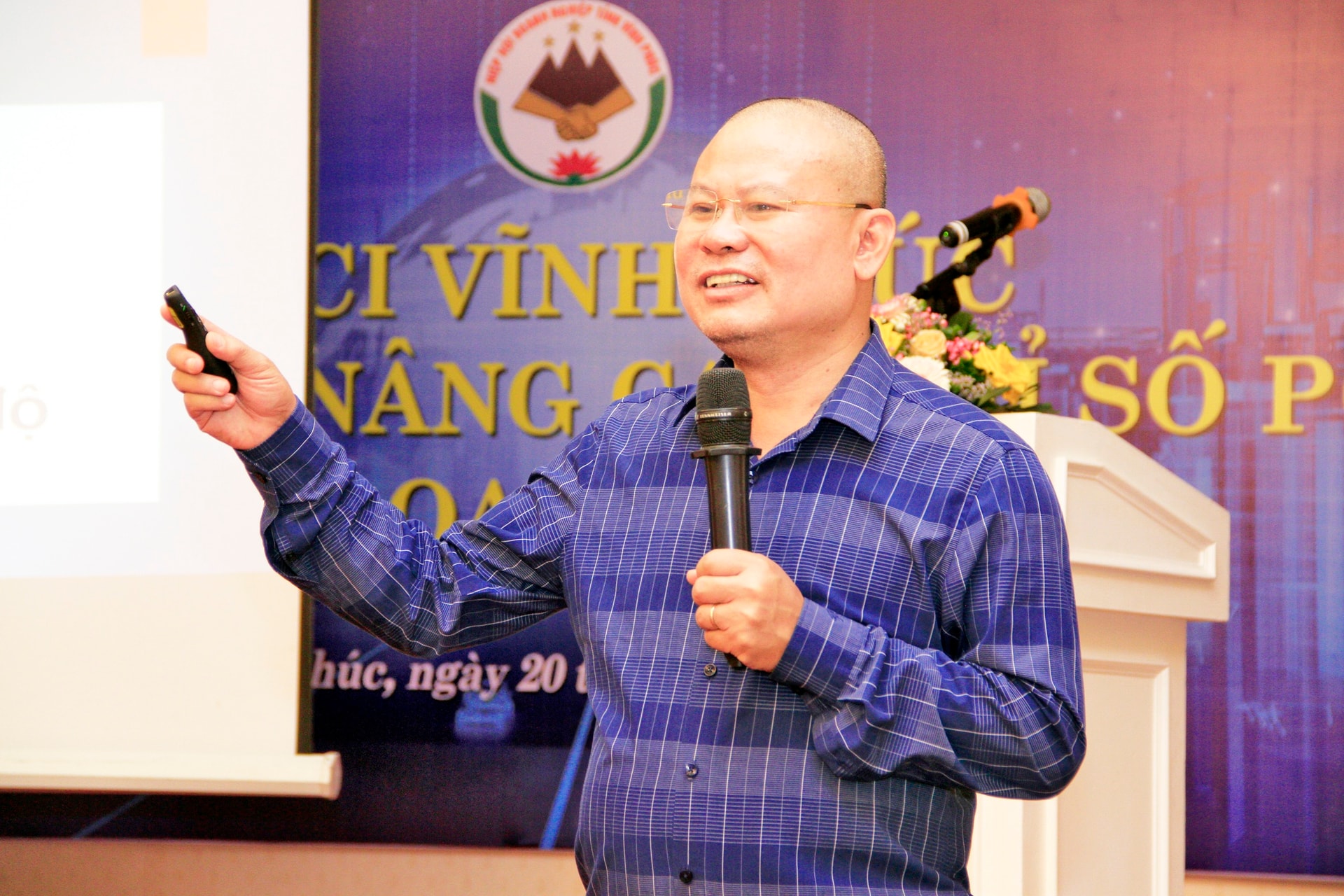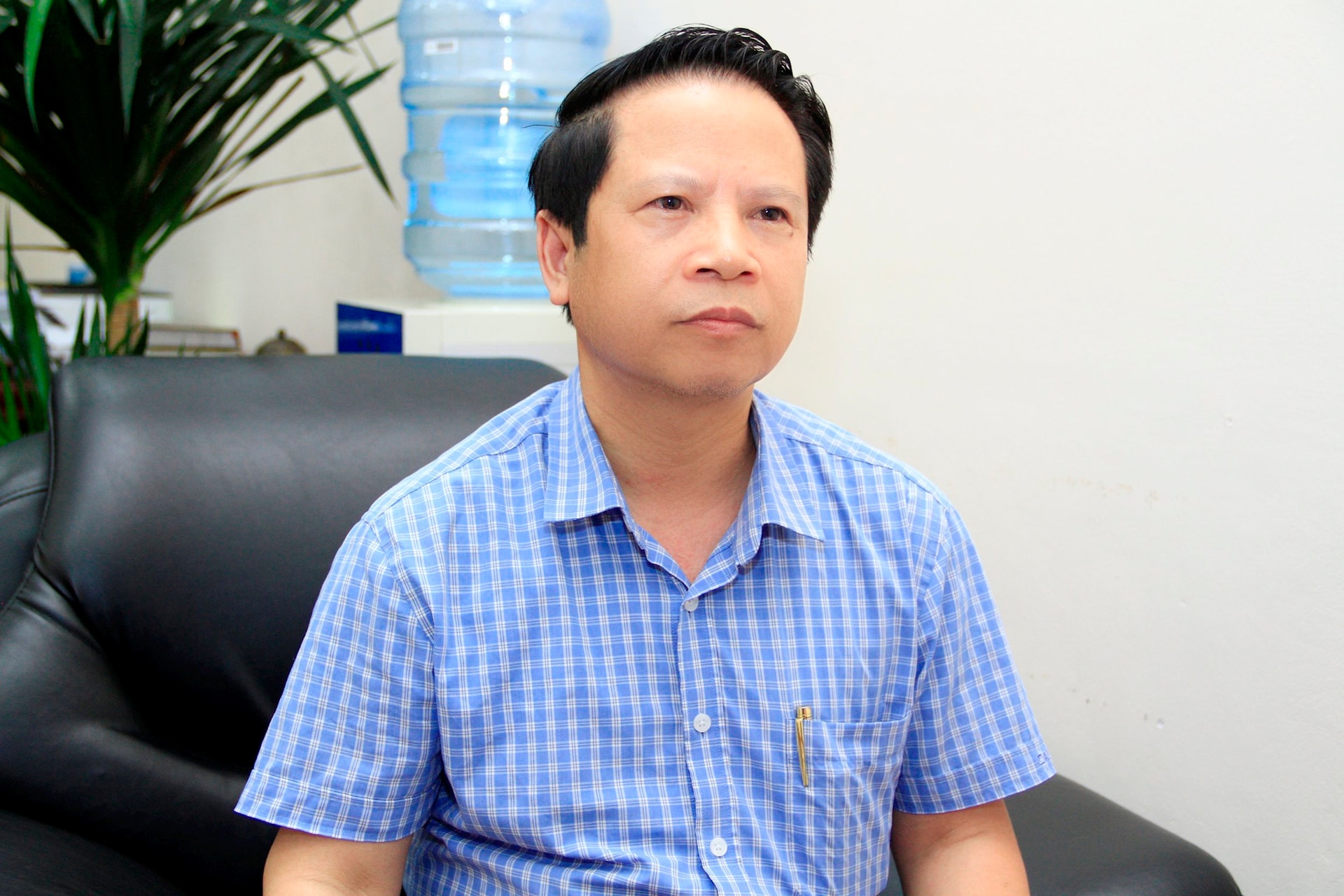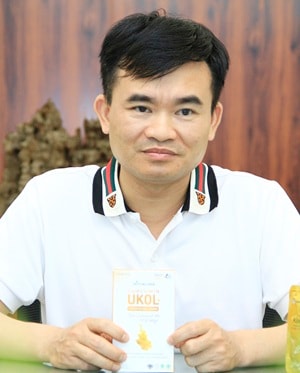DDCI Bac Ninh: Relentless reforms by local authorities
In recent years, Bac Ninh province has actively deployed and enhanced the Department and District Competitiveness Index (DDCI) to improve the investment and business environment throughout the province.
According to economists, in the context of a fast-growing market economy, alongside the Provincial Competitiveness Index (PCI), the DDCI has become an important tool to assess and measure the competitiveness of government agencies in attracting investment and facilitating business development. It is not merely a ranking but also a tool that helps government agencies reflect on themselves, improve governance efficiency, and support the growth of the business community.

Deputy Prime Minister Nguyen Chi Dung, along with leaders of the Bac Ninh Provincial Party Committee, People's Council, and People's Committee, visited Hanel PT Joint Stock Company to promote the development of science and technology in enterprises. (Photo: Vu Phuong)
“A true mirror” of competitiveness
According to Deputy Director of the Bac Ninh Department of Finance Nguyen Phuong Bac, who has many years of experience conducting DDCI evaluations in various provinces/cities and within Bac Ninh province, the DDCI “diagnoses” each agency; “knocks on the door” of each department/sector to identify issues; and then applies appropriate solutions. The discussions triggered by DDCI to improve the business environment create a close interaction between the public and private sectors, contributing to driving reform forward.
“If given due attention and implemented seriously, the DDCI will trigger many other reform activities and create a multiplier effect, not only improving the component indices of the PCI but also enhancing governance quality and operational efficiency in the public sector”, said Mr. Nguyen Phuong Bac.
Additionally, each time the DDCI is published, provinces, cities, and relevant authorities can “reflect on themselves” through evaluations from the business community. This serves both as an objective assessment from those being managed and as a realistic reflection of the quality of the business environment in each locality.

Mr. Nguyen Phuong Bac, Deputy Director of Bac Ninh Department of Finance, spoke at a DDCI survey training session in Vinh Phuc. (Photo: Vu Phuong)
In particular, the indicators presented reflect the quality of economic governance, such as administrative procedures, the quality of public services, the transparency of government agencies, businesses' access to resources, and support policies. Therefore, the DDCI has helped government agencies identify weaknesses, thereby creating opportunities to reform policies and administrative procedures.
Promoting reform with no end
Besides helping government agencies reflect on themselves, the DDCI also plays an important role in addressing weaknesses in the management and administration of Bac Ninh province. Each year, provinces with low DDCI scores receive proposals and feedback from the business community regarding specific issues that need improvement. This creates opportunities for the evaluated units not only to recognize their shortcomings but also to learn from the experiences of other localities.
Mr. Nguyen Duy Ha, Deputy Director in charge of the Bac Ninh Institute for Socio-Economic Development, believes that through multiple DDCI assessments, the province has drawn important lessons regarding administrative reforms. Over the years, complex and prolonged administrative procedures have created significant barriers for businesses, especially in obtaining investment licenses, land use rights certificates, and procedures related to production, business, and import-export activities.
Feedback from businesses has helped authorities gain a clearer understanding of the importance of administrative reform, streamlining processes, and reforming management mechanisms to better support enterprises.

Mr. Nguyen Duy Ha, Deputy Director of the Bac Ninh Institute for Socio-Economic Development, spoke in an interview with the Business Forum Magazine. (Photo: Vu Phuong)
In addition, according to Mr. Ha, the DDCI also highlights issues related to transparency in the operations of government agencies. Lack of transparency in licensing, unclear information about business support policies, and unfair allocation of resources are among the concerns raised by businesses in DDCI surveys. Recognizing these issues has helped government agencies adjust their operations and implement more transparent and open public policies, thereby creating a more favorable investment environment for businesses.
“Addressing weaknesses in management, organization, and administration is a long-term process that requires determination; therefore, it calls for the unified effort of all levels and sectors, from the government to the business community”, emphasized Mr. Nguyen Duy Ha.
Suggestions from businesses
Mr. Nguyen Dinh Dung, General Director of PTK Vietnam Joint Stock Company

Mr. Nguyen Dinh Dung
Supporting OCOP enterprises to participate in trade fairs abroad, organized by Bac Ninh province (and central authorities), will be a great opportunity for Bac Ninh’s OCOP products to showcase their local value and specialties, helping to enhance competitiveness and build a strong brand in the international market.
Currently, many enterprises producing these products face difficulties in accessing international distribution channels and developing suitable marketing strategies. Therefore, support from government agencies to help businesses participate in international trade fairs is a highly effective way to enable these products to connect directly with potential partners, learn from developed countries, and increase export opportunities.
Mr. Nguyen Manh Hung, Director of Vinh Giang Investment and Trading Joint Stock Company

Mr. Nguyen Manh Hung
Private enterprises today have not received adequate attention, especially in terms of developing appropriate policy mechanisms to promote production and business growth. These enterprises need strong support from the government, particularly through open policies that create favorable conditions for their development. Therefore, Resolution 68-NQ/TW issued by the Politburo on the development of the private economy acts as a “liberation” for businesses, helping them overcome legal and administrative barriers while providing a powerful impetus for domestic entrepreneurs and enterprises.
Resolution 68 not only expands the operational space for private enterprises but also enhances their role in the national economy, promoting innovation, technological advancement, and competitiveness. With timely and appropriate support policies, private businesses will have opportunities for sustainable development, thereby contributing to the overall growth of the country’s economy. The Bac Ninh provincial government needs to take decisive actions to promptly implement the resolution, ensuring that private enterprises in the area can fully seize development opportunities and contribute to the province’s economic growth.
Mr. Luong Duc Bang, Director of Fujiko Vietnam Herbal Medicine Co., Ltd

Mr. Luong Duc Bang
The People’s Committee of Bac Ninh province has directed departments, agencies, and local authorities to further strengthen communication efforts in the areas of administrative procedure reform and improvement of the investment and business environment. This aims to foster consensus, understanding, and mutual support between government agencies and the business community.
Training and widespread communication about the DDCI are crucial tasks to ensure that all officials within the state apparatus fully and accurately understand the index. Only then can a synchronized effort be achieved to improve public services and enhance business satisfaction. This effort should also be strongly extended to the business community through business associations and appropriate communication strategies.








